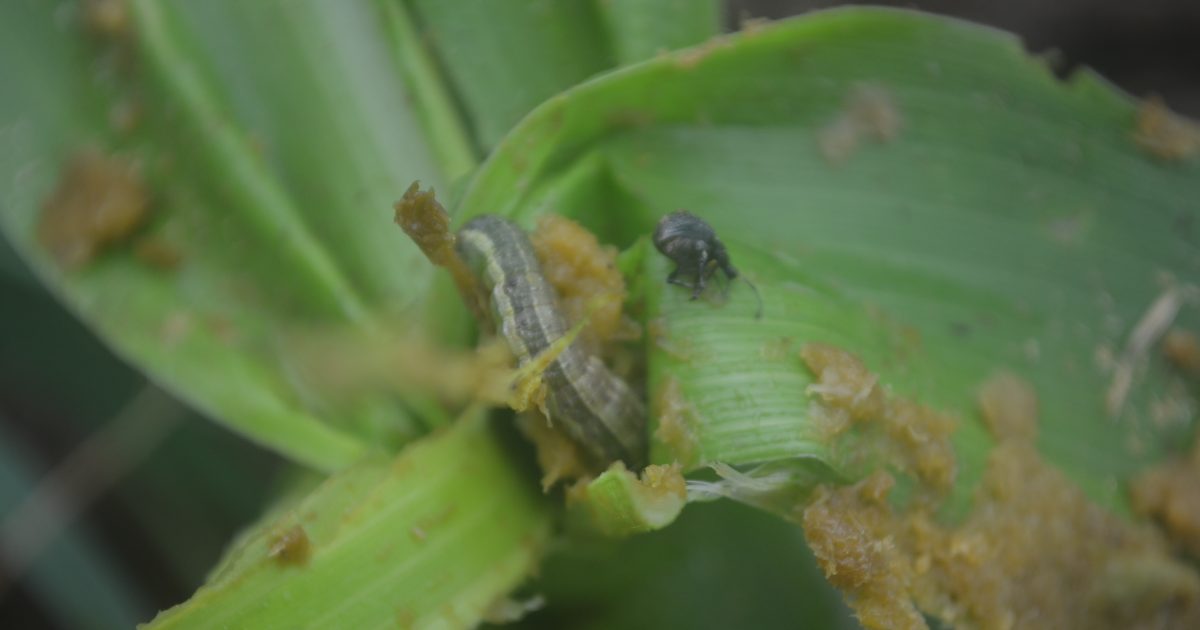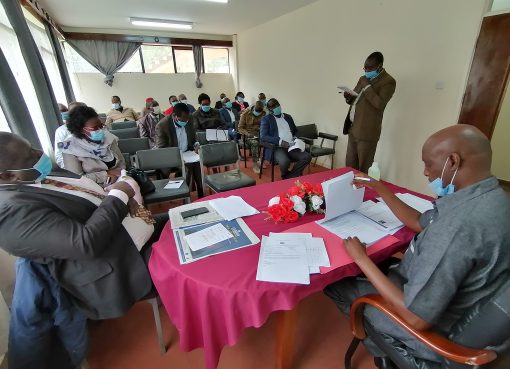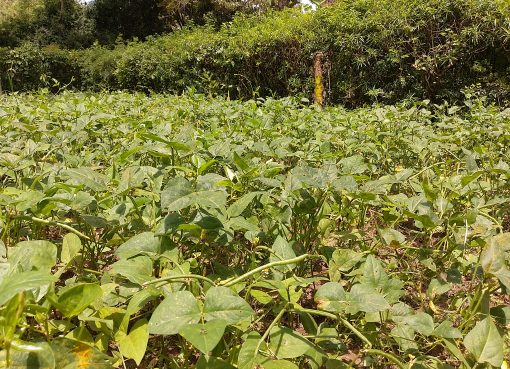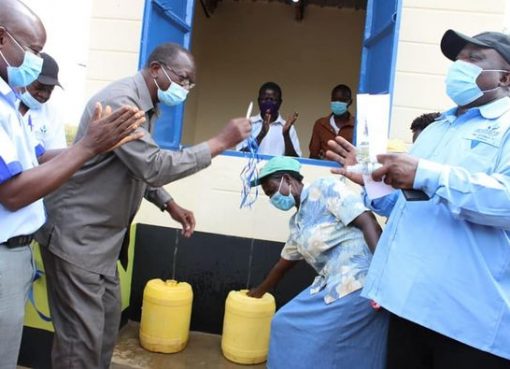
Farmers and other stake holders across Kirinyaga County have been sensitized on the control of fall army worms.
The exercise held at a Kerugoya hotel brought together farmer’s representatives, Agro dealers, ward administrators and county extension officers.
The County Director of Agriculture (CDA), Benson Mukungo said the training was a joint venture between the county and the national government.
Mukungo said the training involved giving the farmers the knowledge on how to identify and take control of the fall army worms.
He said the fall army worm has unique characteristics and features which include a Y shape on the top of the head.
“The worm also has a display of four symmetrical dots on the rear end making distinct from other worms,”Mukongo said.
“The other means of identification is to scrutinize the nature of the damage on the maize crop, the worm attacks the leaves and the growing tip,” the official said.
He said one way of controlling the fall army worm is by use of soil in the young maize which is applied at the tip, saw dust can also be used in place of the soil, which suffocates and block the worm from getting to the tip of the crop.
“One sure way of controlling the fall army worm is scouting by the farmers and taking action immediately to stop further spread of the worm, Mukongo said
The moth he said is active during the night making it hard for farmers to see.
“We have also recommended to the farmers, those who may be badly affected to consider having a maize-free season, we call it a closed season where farmers refrain from planting maize crop for a period of time,” he said.
The closed season, Mukungo told the farmers will break the life cycle of the army worm giving the farmer an advantage the next season.
The use of chemicals recommended in the control of fall army worms should be used prudently only when the worm is seen.
To mitigate the negative effects of the pest, farmers are advised to adhere to regional planting schedules, avoid off season and late planting, intercropping maize with legumes like beans as these can help reduce the pest spread.
Others include, the farmer applying all other good agricultural practices like timely weeding, use of manure and fertilizer to ensure the plant stays healthy.
The CDA said the pest since it was reported in Kirinyaga, three or five years ago has now spread across the county.
He said every area is at risk, what is important is to be on the lookout and put in place control measures once the insect is identified.
The fall army worm attacks a wide range of host plants of up to 80 different types but mostly prefer grass crops like the wheat, rice, Nappier grass and maize.
Invasion of the Fall Armyworm (Spodoptera frugiperda) was first reported in Africa in September 2016. Since then, it has been reported in most Sub Saharan Countries, where severe damage in maize fields has been observed.
In Kenya, the pest was first reported in western region (Trans Nzoia, Busia and Bungoma counties) in March, 2017. By the end of the year, the pest had been confirmed in forty two (42) counties, including the major seed maize production areas of Rift valley, Coastal and Western regions.
The rapid spread of fall army worm poses unprecedented threat to food security, incomes and livelihoods in the country.
By Irungu Mwangi





